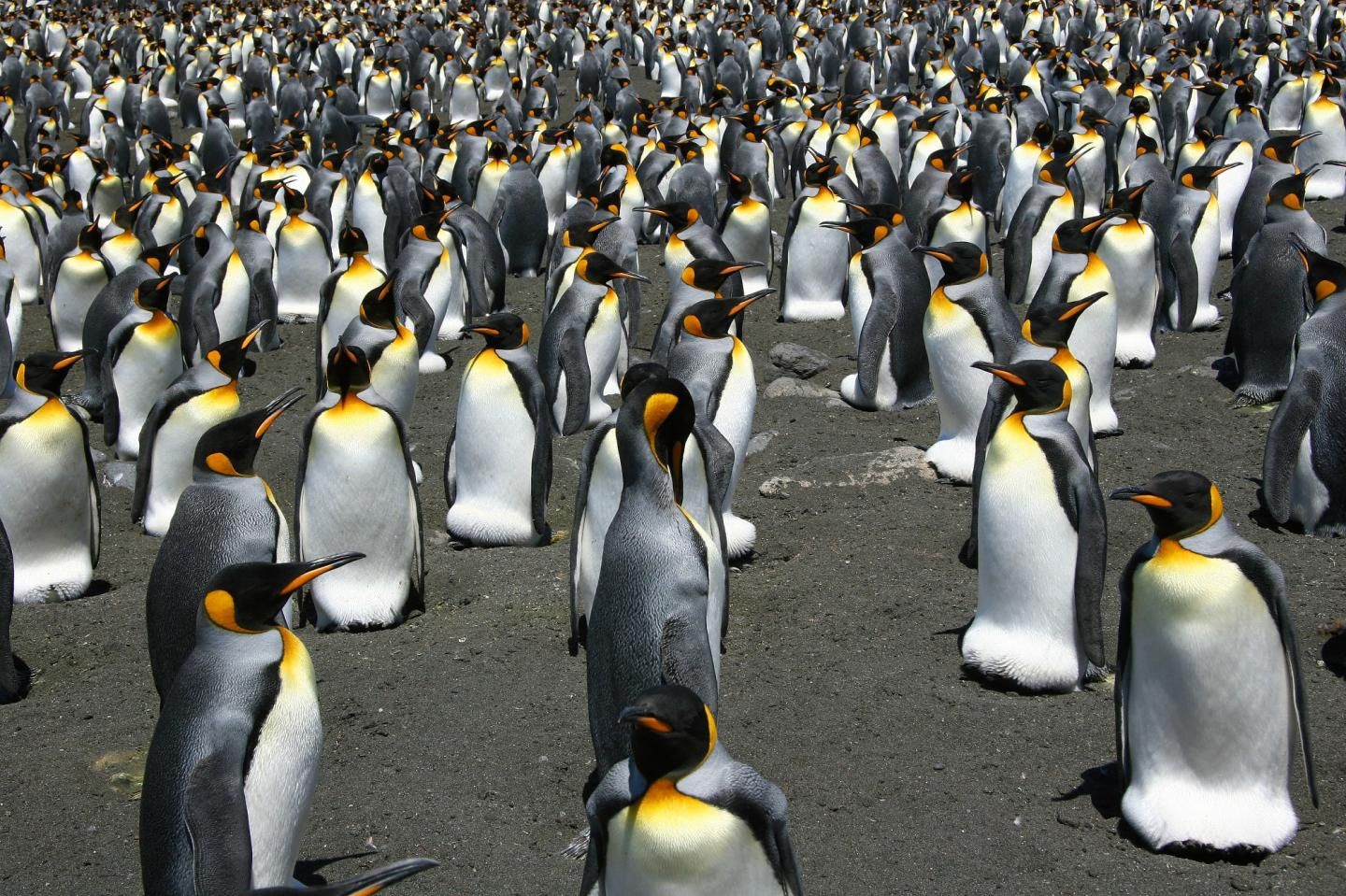
King penguins face a massive population crash as climate change and overfishing shift and plunder their food supplies.
If humans do not take action, some 70 percent of 1.6 million king penguin breeding pairs could disappear or be forced to relocate by the end of the century, according to a study in Nature Climate Change.
In addition to tolerable temperatures and islands with smooth beaches and no surrounding winter sea ice, king penguins need a reliable source of food for their chicks. The Antarctic polar front—the north/south ocean borderland where cold and warmer waters meet—provides a huge concentration of fish.
But, because of climate change, this front is drifting further and further south.
Parents must travel further from their island homes to catch fish for their chicks. As this distance increases, baby penguins can starve while waiting for their meals. As more and more chicks die of hunger, the population could crash—or relocate.
Read more: Thousands of penguin chicks starve to death in Antarctica
"The main issue is that there is only a handful of islands in the Southern Ocean and not all of them are suitable to sustain large breeding colonies," said Robin Cristofari, study author from the Institut Pluridisciplinaire Hubert Curien in Strasbourg, France, in a statement.
Genomic analysis revealed the penguins have survived several similar dramatic climate shifts over the past 50,000 years. While populations have dwindled to a critical state before, the penguins have always bounced back.
"Extremely low values in indices of genetic differentiation told us that all colonies are connected by a continuous exchange of individuals," said study author Emiliano Trucchi, formerly at the University of Vienna and now at the University of Ferrara, Italy, in the statement. "In other words, king penguins seem to be able to move around quite a lot to find the safest breeding locations when things turn grim."
Read more: It's so cold in Canada that a zoo has to bring its penguins inside
But, this time round the penguins face an unprecedented threat: humans. For the first time, fast and potentially irreversible climate change is being driven by human activity. In addition, industrial fishing presents stiff competition for the penguins' food supplies.
The animals could potentially seek refuge in some islands further south, "but the competition for breeding sites and for food will be harsh, especially with the other penguin species like the Chinstrap, Gentoo or Adélie penguins, even without the fisheries. It is difficult to predict the outcome, but there will surely be losses on the way," explained Céline Le Bohec, another study author from the Institut Pluridisciplinaire Hubert Curien, in the statement.
Le Bohec added: "If we want to save anything, proactive and efficient conservation efforts but, above all, coordinated global action against global warming should start now."
Uncommon Knowledge
Newsweek is committed to challenging conventional wisdom and finding connections in the search for common ground.
Newsweek is committed to challenging conventional wisdom and finding connections in the search for common ground.
About the writer
Katherine Hignett is a reporter based in London. She currently covers current affairs, health and science. Prior to joining Newsweek ... Read more
To read how Newsweek uses AI as a newsroom tool, Click here.








